Converting a vehicle from automatic to manual transmission involves replacing the automatic gearbox with a manual one‚ requiring specific parts and expertise․ Costs range from $1‚000 to $7‚000‚ depending on the vehicle and labor․ This swap is often pursued for better control‚ fuel efficiency‚ or to restore a classic car’s original feel․ While it can be complex and costly‚ enthusiasts find it rewarding for enhanced driving experiences․
Overview of the Process
Converting an automatic transmission to a manual involves removing the automatic gearbox and installing a manual transmission‚ along with a clutch system․ The process requires mechanical expertise‚ as it includes replacing the torque converter with a clutch‚ updating the hydraulic or cable systems‚ and potentially modifying the electrical and engine control systems․ While some enthusiasts attempt this swap themselves‚ professional assistance is often recommended‚ especially for complex modern vehicles with advanced electronics․
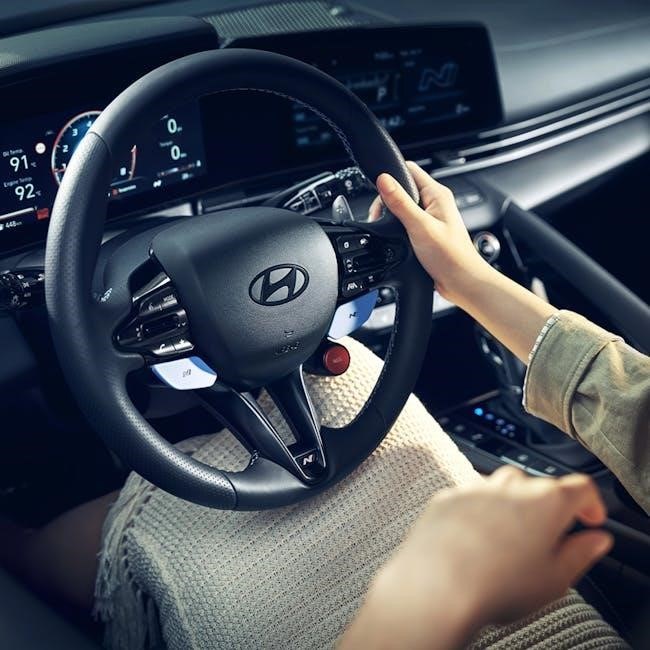
Factors Affecting the Cost of a Transmission Swap
The cost of an automatic to manual transmission swap is influenced by several factors‚ including the vehicle’s make and model‚ parts availability‚ labor costs‚ and additional hardware requirements․ The specific car model can significantly impact the expense‚ as some vehicles have more accessible parts and stronger community support‚ while others may require rare or costly components․ Labor costs vary widely depending on whether the swap is done professionally or as a DIY project․ Furthermore‚ the need for extra hardware‚ such as a clutch system and potential electronic modifications‚ adds to the overall expense․ Understanding these factors helps in estimating the total cost accurately․
Vehicle Make and Model
The vehicle’s make and model significantly impact the swap cost․ Common cars like Honda Civics or Toyota Corollas are cheaper due to readily available parts․ Luxury or high-end vehicles‚ such as BMWs or Mercedes‚ cost more due to expensive components․ Rare or classic cars may require custom solutions‚ increasing expenses; Additionally‚ some models‚ especially older ones‚ might need extra modifications‚ like wiring or engine changes‚ adding to the overall cost․ The specific car model plays a crucial role in determining the final price of the swap․
Availability of Parts
The availability of parts significantly influences the cost of a transmission swap․ For popular models like Honda Civics or Toyota Corollas‚ parts are plentiful and affordable‚ reducing expenses․ However‚ for rare or high-end vehicles‚ such as classic or luxury cars‚ parts may be scarce or expensive․ This scarcity often leads to higher costs‚ as custom fabrication or sourcing from specialty suppliers becomes necessary․ The ease of finding compatible components directly impacts the overall price of the swap‚ making it a key factor in budgeting․
Labor Costs
Labor costs for a transmission swap vary widely depending on the mechanic’s expertise and the shop’s rates․ Professional shops typically charge between $2‚000 to $4‚000 for labor alone‚ with the total cost including parts often ranging from $4‚000 to $7‚000․ Complex swaps for high-end or rare vehicles may exceed these estimates‚ as specialized knowledge and additional time are required․ DIY projects eliminate labor costs but demand significant mechanical skill and time investment․
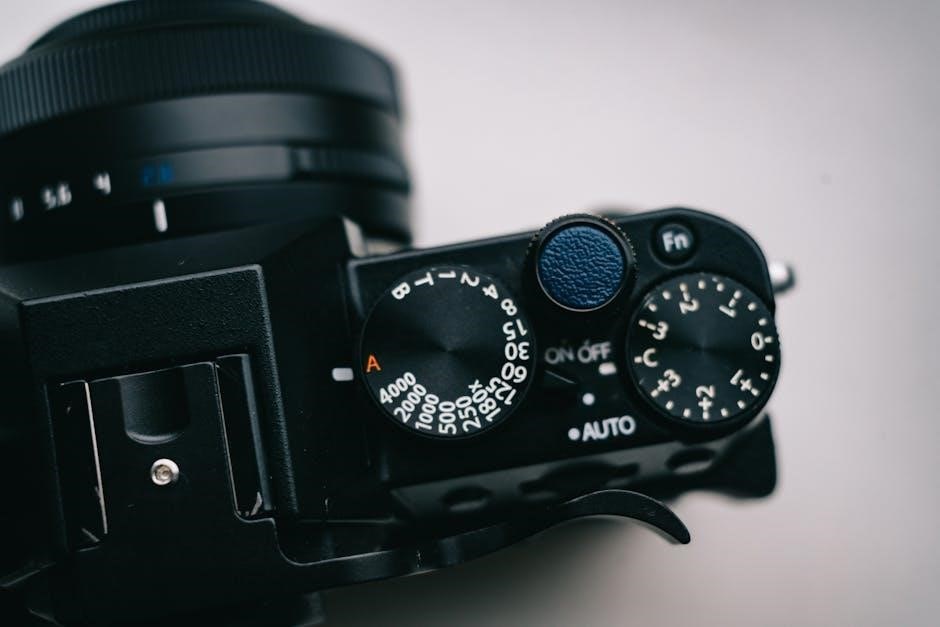
Necessary Parts and Components
A manual transmission swap requires a compatible transmission‚ clutch kit‚ flywheel‚ and additional hardware like adapters and linkages․ Costs for these parts typically range from $1‚000 to $3‚000․
Transmission Replacement
The core of a manual swap is replacing the automatic transmission with a compatible manual unit․ Costs for a factory-remanned transmission range from $1‚300 to $3‚400‚ depending on the model and type․ Additional components like adapters and bellhousing may be needed‚ adding to the expense․ Labor costs vary‚ but professional installation can add significant fees․ While used transmissions are cheaper‚ they may require rebuilding‚ balancing initial savings against long-term reliability․ This step is critical for ensuring proper functionality post-swap․
Clutch Installation
A manual transmission requires a clutch system‚ which includes a clutch disc‚ pressure plate‚ and flywheel․ The clutch kit itself can cost between $300 to $1‚000‚ depending on the vehicle and quality․ Labor costs for installation typically add $500 to $1‚500‚ as it involves significant mechanical work․ Upgrading to a high-performance clutch may increase expenses further․ Proper installation ensures smooth gear engagement‚ making it a vital part of the swap process for optimal driving performance and longevity of the system․
Additional Hardware
Beyond the transmission and clutch‚ additional components are needed‚ such as a clutch pedal assembly‚ hydraulic lines‚ and mounts․ These parts can cost between $500 to $2‚000‚ depending on the vehicle․ A shifter assembly and linkage may also be required‚ adding another $200 to $1‚000․ Ensuring all hardware is compatible and properly installed is crucial for smooth operation․ These expenses are often overlooked but are essential for completing the swap successfully and maintaining vehicle performance and reliability over time․
Labor Costs for Professional Shops
Labor costs for a professional transmission swap typically range from $1‚500 to $3‚000‚ depending on the shop’s expertise‚ location‚ and the complexity of the job․
Average labor costs
Average labor costs for a professional transmission swap range from $1‚500 to $3‚000‚ depending on the shop’s rates‚ the mechanic’s expertise‚ and the vehicle’s complexity․ High-end or complex swaps may exceed $4‚000․ These costs cover the time required to remove the automatic transmission‚ install the manual gearbox‚ and integrate necessary components like the clutch and pedal assembly․ Labor costs vary by region and shop specialization‚ with dealerships often charging more than independent mechanics for the same service․
Complexity of the Swap
The complexity of an automatic-to-manual transmission swap varies by vehicle‚ with some models requiring extensive modifications․ High-end or rare vehicles may need custom components‚ adding to the challenge․ The process often involves reconfiguring wiring‚ adjusting the pedal assembly‚ and ensuring compatibility with the engine․ While straightforward in some cases‚ others demand specialized tools and expertise‚ increasing both time and cost․ Despite the hurdles‚ careful planning and skilled execution can make the swap successful and rewarding for enthusiasts seeking a manual driving experience․
DIY vs․ Professional Installation
DIY transmission swaps are cost-effective for experienced enthusiasts‚ while professional installations ensure reliability and warranty․ Choose based on your expertise‚ time‚ and budget constraints for optimal results․
DIY Cost Breakdown
A DIY transmission swap can save labor costs but requires tools and expertise․ Parts include a manual transmission ($500-$1‚500)‚ clutch kit ($300-$600)‚ and additional hardware ($200-$400)․ Total DIY costs range from $1‚000 to $3‚000‚ depending on the vehicle and parts quality․ Labor costs are avoided‚ but time and skill are essential․ Professional labor can add $1‚000-$2‚000‚ making DIY a cost-effective option for experienced enthusiasts with proper tools and knowledge․
Professional Shop Pricing
Professional shops typically charge between $3‚500 to $7‚000 for an automatic-to-manual transmission swap‚ including parts and labor․ The cost varies based on the vehicle’s make‚ model‚ and transmission type․ High-end or rare vehicles may exceed these estimates․ Labor costs alone can range from $1‚000 to $2‚000‚ with parts adding another $2‚000 to $5‚000․ Professional installation ensures proper handling of complex tasks like wiring‚ clutch setup‚ and gearbox alignment‚ often with a warranty for added peace of mind․
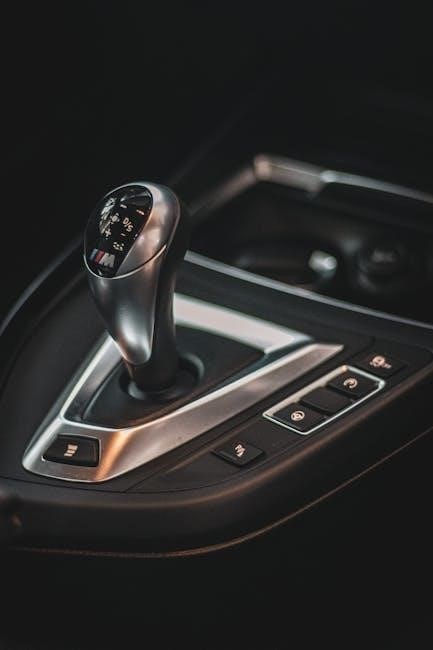
Budgeting for the Swap
Budgeting for an automatic-to-manual transmission swap requires planning for parts‚ labor‚ and unforeseen costs․ Low-end estimates start around $1‚000‚ while high-end projects can exceed $7‚000․ Factors like vehicle complexity‚ rare parts‚ and professional labor significantly impact the total cost‚ making it essential to allocate additional funds for potential surprises during the process․
Low-End Estimates
Low-end estimates for an automatic-to-manual transmission swap typically range from $1‚000 to $3‚000‚ covering basic parts and labor․ This budget-friendly option is achievable with a straightforward swap using readily available components․ Vehicles like the Honda Civic or Toyota Corolla often fall into this range due to abundant aftermarket support․ DIY enthusiasts with mechanical skills can further reduce costs by sourcing parts from junkyards or using aftermarket kits‚ making the project feasible for budget-conscious car owners․
High-End Estimates
High-end estimates for an automatic-to-manual transmission swap can range from $4‚000 to $7‚000 or more‚ particularly for luxury or high-performance vehicles․ Costs escalate with rare or specialized transmissions‚ such as those for BMW or Porsche models‚ which may require custom parts or additional labor․ Professional shops often charge premium rates for complex swaps‚ especially if the vehicle has advanced systems requiring recalibration․ This high-end range reflects the expertise and resources needed for intricate or high-value vehicle conversions․
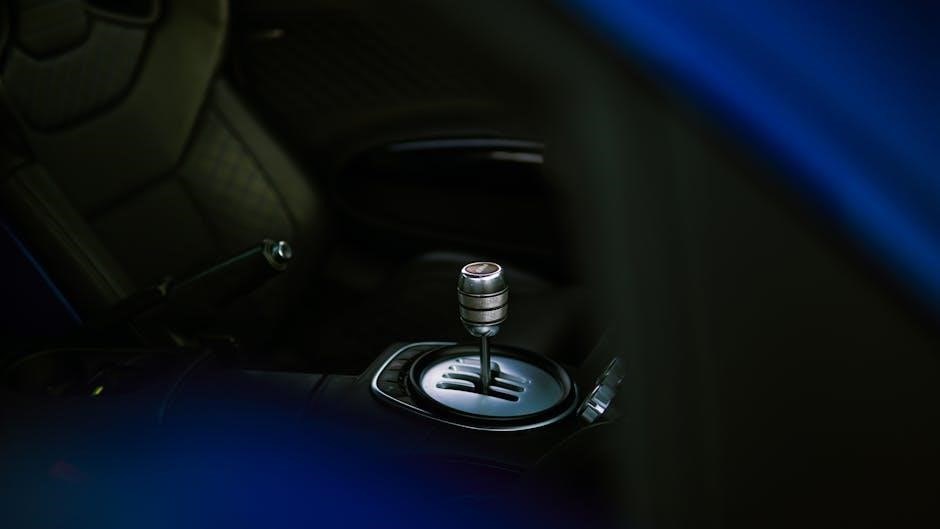
Benefits and Drawbacks
Manual transmissions offer better fuel efficiency and driver control but require more skill and effort․ The swap can enhance performance but may reduce resale value and comfort․
Advantages of a Manual Transmission
A manual transmission provides better fuel efficiency‚ lower maintenance costs‚ and increased driver control․ It enhances the driving experience with precise gear shifts‚ offering a more engaging and connected feel․ Manuals are often lighter and more durable than automatics‚ reducing long-term repair costs․ Additionally‚ manual transmissions are typically less expensive to replace or repair‚ making them a cost-effective option for drivers seeking both performance and efficiency․
Disadvantages of the Swap
Swapping from automatic to manual transmission can be costly‚ with expenses ranging from $1‚000 to $7‚000‚ depending on labor and parts․ The process is labor-intensive‚ requiring specialized tools and mechanical expertise․ Additionally‚ the swap may void warranties or complicate future maintenance․ For drivers who value convenience‚ manuals demand more effort in stop-and-go traffic‚ potentially leading to driver fatigue․ This swap is often not cost-effective unless driven by specific needs like performance or rarity‚ making it a significant commitment for car owners․
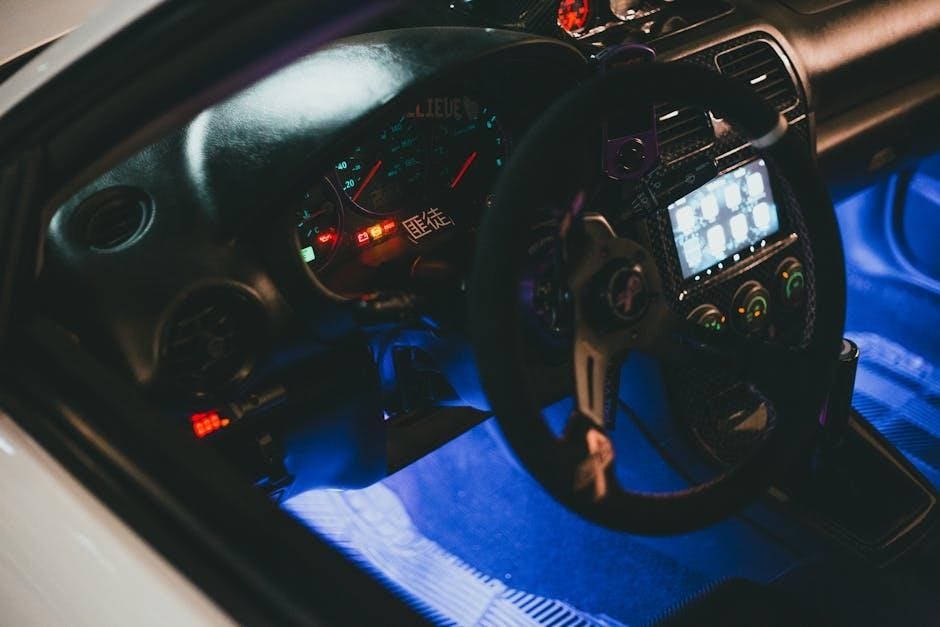
Special Considerations
Special considerations include rare or high-end vehicles‚ where parts may be scarce and costly․ Emotional or sentimental value can justify the swap‚ despite high costs and complexity․
Rare or High-End Vehicles
Swapping an automatic to manual in rare or high-end vehicles is particularly challenging due to limited part availability and higher costs․ These vehicles often require custom solutions‚ increasing expenses․ For instance‚ a luxury car might need specialized components‚ raising the total cost to $7‚000 or more․ Additionally‚ the scarcity of compatible parts can prolong the project‚ making it less cost-effective․ However‚ for enthusiasts‚ the unique result justifies the investment and effort․
Emotional or Sentimental Value
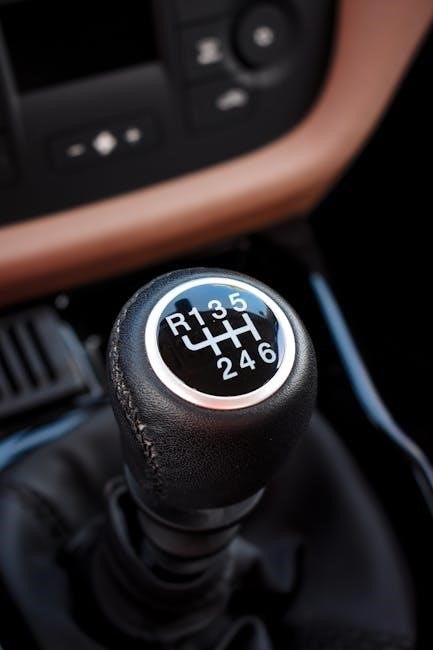
For some‚ swapping an automatic to a manual transmission is driven by emotional or sentimental reasons․ Owners of rare or unique vehicles may opt for the conversion to preserve the car’s identity or achieve a desired driving experience․ While the cost is high‚ the sentimental value often justifies the expense․ This is particularly true for classic or heritage vehicles‚ where maintaining originality or personal connection outweighs practical considerations like cost or convenience․
Final Thoughts and Recommendations
Automatic to manual transmission swaps can be rewarding but require careful planning․ Costs range from $1‚000 to $7‚000‚ varying by vehicle and complexity․ DIY enthusiasts with experience may save money‚ while professional shops offer reliability and warranties․ Assessing the vehicle’s value and personal goals is crucial․ For rare or high-end cars‚ the swap may justify the expense․ Always research parts availability and consult a mechanic for tailored advice to ensure a smooth transition to manual driving․